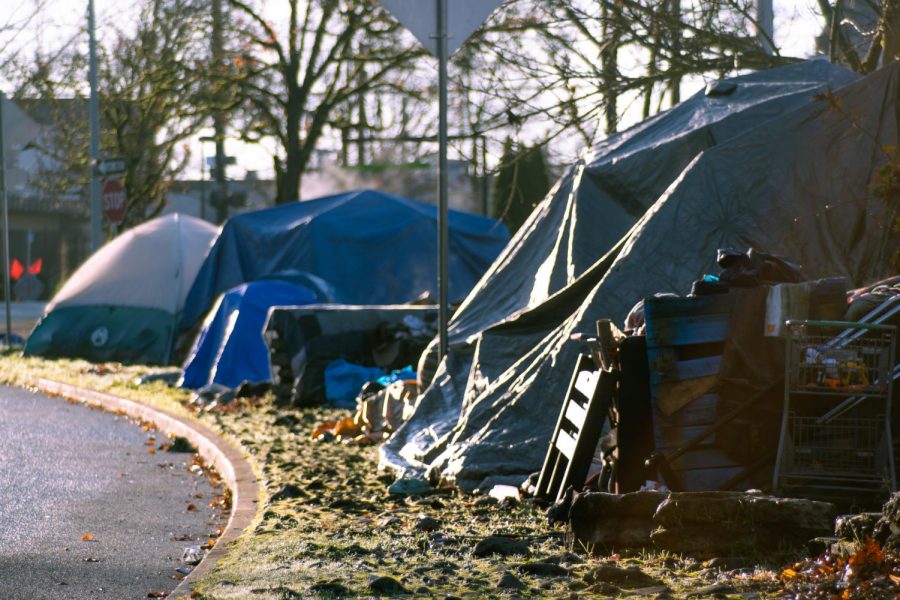How Adjusting Our Terminology Towards the Houseless Community Can Express Empathy
Tent encampments can be found all over Oregon, including on 102nd Street in Portland.
December 8, 2021
The word used by many to categorize people without a permanent shelter is homeless, but taking a closer look, the meaning of the word sounds like “without a home.” It may not seem like a big deal to many, but the word is degrading and dehumanizing to those who are experiencing a lack of permanent shelter at this point in their life.
In Portland, the number of people you see living in tents has only continued to grow. Whether you’re downtown, driving through your neighborhood, or at a local park, chances are you’ll see an abundant amount of brightly colored tents and blue tarps set up to provide shelter.
Unfortunately, these numbers are continuing to rise for a variety of reasons, one being COVID-19. According to an article in the Washington Post, the number of large encampments in Portland has gone from six to an estimated 100 since the beginning of the pandemic. But as the numbers are growing, so is people’s hatred for these tents and the people inside them.
If you take a moment you can probably think of at least one time a friend, family member, or even a neighbor made a nasty comment about the “homeless issue” our city is facing. And although it is an issue, in the sense that more and more are struggling without shelter, referring to the houseless as the source of this systemic issue isn’t going to solve the core problem. It’s not going to help them find a job or a place to stay.
So how can we stop making these people feel like they’re unworthy?
Let’s start with something simple enough that anyone can do it — using correct terminology. Instead of saying homeless let’s try using words like houseless. Although it may feel weird to switch out a word you’ve used your whole life to something more uncommon, it will show that you see houseless people as humans.
Unlike the word homeless which suggests that these people don’t have a home, the word “houseless” is more accurate because they do have a home, it is just different than housed people. It could be a tent or multiple tarps and slabs of wood. Whatever it may be, we need to be able to accept that even though it’s different from what we’re used to, it’s still a home.
To many, the “homeless population” is seen as unworthy or worthless. That mindset needs to change because people experiencing houselessness are humans who deserve to be respected. By changing our terminology by using words like houseless, we can begin to give houseless people the respect they deserve as humans.






Ms. Coleman • Dec 8, 2021 at 9:10 pm
Maddie, thank you for writing such a thoughtful opinion piece full of empathy, dignity, and humanity.